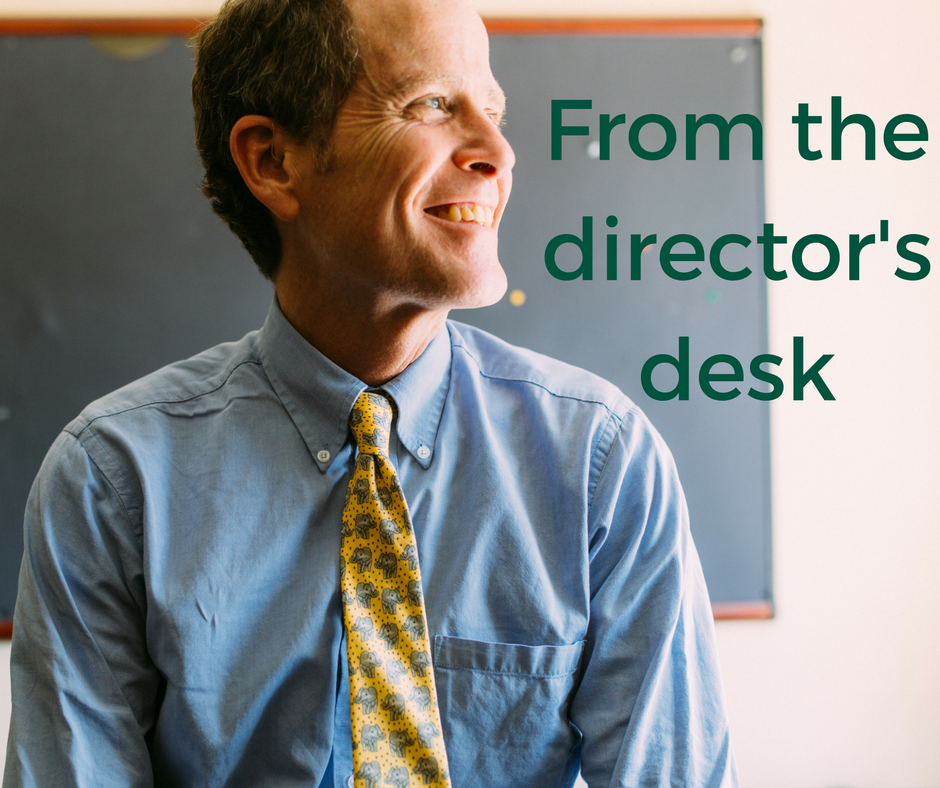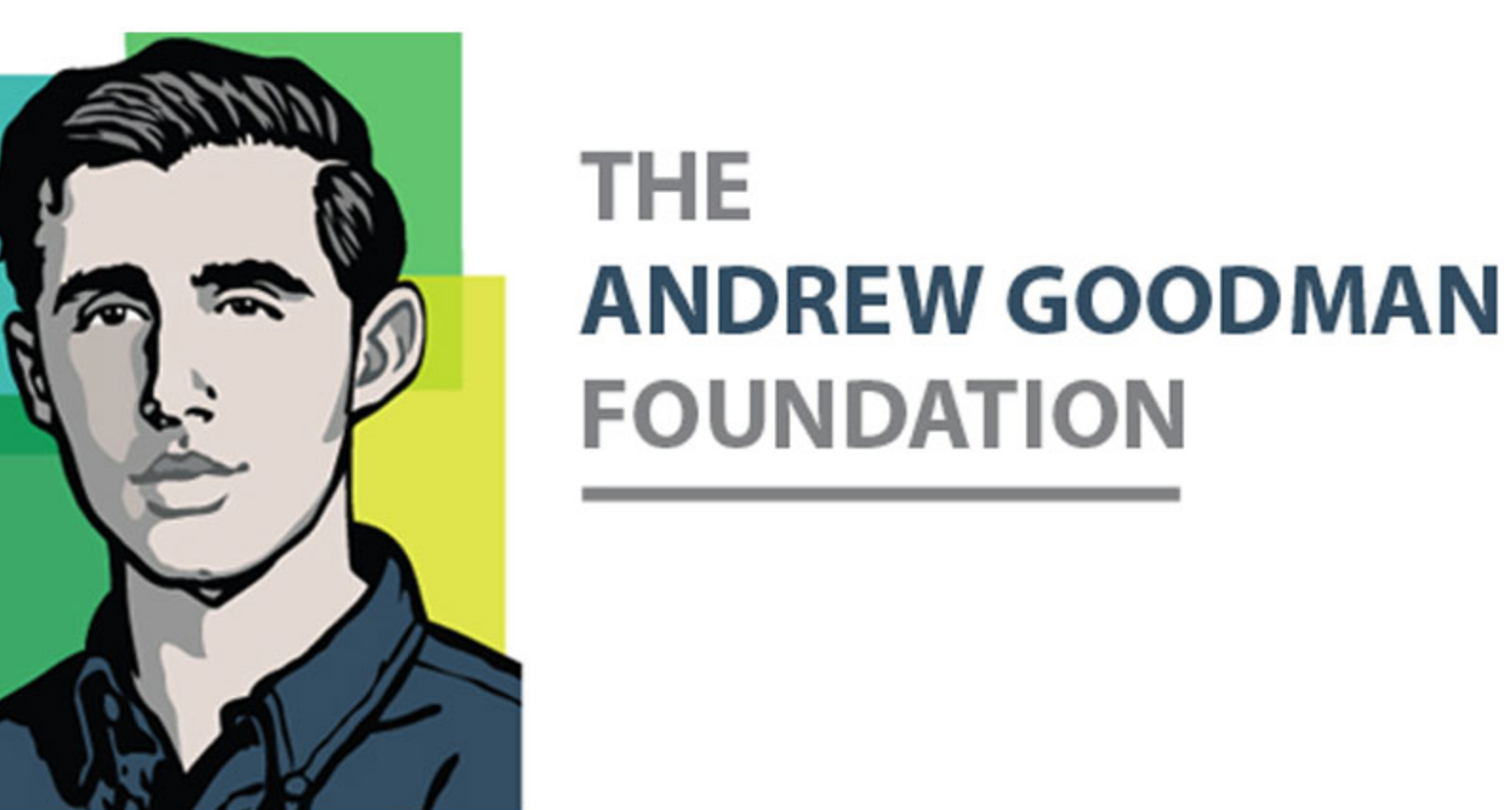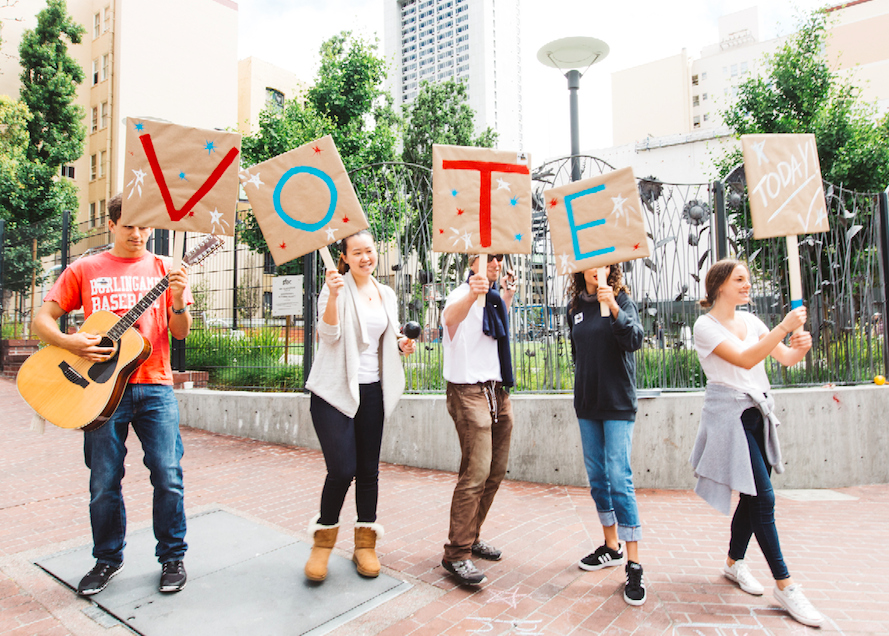
Making Every USF Student a Voter
Professor David Donahue is the director of the Leo T. McCarthy Center for Public Service and the Common Good and a professor of education at USF’s School of Education.
Making every student a voter is the goal of USF Votes, the McCarthy Center’s newest initiative to register 100% of all eligible USF students, educate them about issues and candidates, and turn out 100% of registered voters at election time. Why does this matter? Because USF students, like students nationally, are under-represented in the electorate. We know in the 2012 presidential election, 69.6% of students registered, and 69.7% of those voted, for an overall institutional voting rate of 48.5% of students overall compared to the national average in that election of 46.9%. The percentage of students voting in 2014 midterm election was 20%, less than one percentage point above the national average for all institutions. These data do account for international students and those under 18.

These statistics were a surprise. Given our location in San Francisco, a historical and current hotbed of politics, and our institutional commitments to engagement and social justice, we can do better. Towards that end, the McCarthy Center and the Office of Student Leadership and Engagement have partnered with the Andrew Goodman Foundation to reach our goal of 100% voter participation on campus.
 The Goodman Foundation honors the memory of Andrew Goodman, a civil rights worker in 1964 who joined the movement to register African Americans in the South to vote. On his first day in Mississippi, Goodman, along with two others, was murdered by the Ku Klux Klan. Those three murders were a galvanizing moment in U.S. history reminding everyone in the nation about the importance of equal access to voting. Equal access to voting is just as important today. Despite the increasing diversity of the state and nation, voting participation rates skew older, whiter, and wealthier. Given the diversity of USF students, those voices are needed now more than ever to inform elections of candidates locally and nationally.
The Goodman Foundation honors the memory of Andrew Goodman, a civil rights worker in 1964 who joined the movement to register African Americans in the South to vote. On his first day in Mississippi, Goodman, along with two others, was murdered by the Ku Klux Klan. Those three murders were a galvanizing moment in U.S. history reminding everyone in the nation about the importance of equal access to voting. Equal access to voting is just as important today. Despite the increasing diversity of the state and nation, voting participation rates skew older, whiter, and wealthier. Given the diversity of USF students, those voices are needed now more than ever to inform elections of candidates locally and nationally.
Our first step towards making every USF student a voter is taking place this fall. At student check in, the McCarthy Center is coordinating efforts to make voter registration part of the check in process for new students. On move in day, students will get their ID, their room, and register to vote. Registering to vote as part of the very first day on campus reflects our values that being part of USF means participating in the community, including voting. It reflects our belief that USF students are not in a bubble, but very much part of the world and that we can participate in changing the world in many ways, including at the ballot box. We know from research that one of the reasons people give for not voting is that they find the registration process confusing and intimidating. We hope to remove that obstacle.
 Other obstacles remain, and through the USF Votes project, we plan to address these as well. Students do not vote because they believe their vote does not matter, or they don’t like the candidates, or they believe the process is stacked against people with views like their own. We know for example, that some students would rather be involved in direct service to their community, believing this makes a bigger difference than voting. Others believe protest is more effective than elections. This is where voter education dovetails with the other goals of the McCarthy Center. We know the importance of direct service, particularly because so many of our community partners rely on USF service learning students to help provide direct service. But direct service is not an alternative to political engagement. With reflection, direct service can be a vehicle and spur to more informed political participation. Similarly, protests are vital when people have no other alternative to express themselves against injustice or oppression. But protest is also not an alternative to voting but another form of political engagement that includes voting.
Other obstacles remain, and through the USF Votes project, we plan to address these as well. Students do not vote because they believe their vote does not matter, or they don’t like the candidates, or they believe the process is stacked against people with views like their own. We know for example, that some students would rather be involved in direct service to their community, believing this makes a bigger difference than voting. Others believe protest is more effective than elections. This is where voter education dovetails with the other goals of the McCarthy Center. We know the importance of direct service, particularly because so many of our community partners rely on USF service learning students to help provide direct service. But direct service is not an alternative to political engagement. With reflection, direct service can be a vehicle and spur to more informed political participation. Similarly, protests are vital when people have no other alternative to express themselves against injustice or oppression. But protest is also not an alternative to voting but another form of political engagement that includes voting.
The habits and dispositions developed in college last a lifetime. That is true of voting. Infrequent college voters stay in that pattern. Similarly, frequent voters tend to vote routinely throughout their lives. Through USF Votes, we hope to instill the lifelong habit of voting. As John Lewis, Congressman from Georgia and civil rights leader says, “voting is precious. It’s almost sacred. It is the most powerful nonviolent tool or instrument that we have in a democratic society. And we must use it.”

